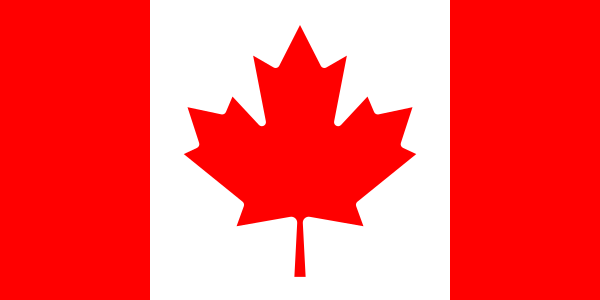Canadian Citizenship Practice Test
Try our free online practice tests. Our website is designed to help you prepare for and pass your Citizenship Test
Study for the test
Use our official study guide, Discover Canada: The Rights and Responsibilities of Citizenship, to study for your test. You can start studying for the test at any time.
The official study guide is always free. The guide is available in multiple formats. You can choose to:
Taking the test
The test is:
- in English or French
- 30 minutes long
- 20 questions
- multiple-choice and true or false questions
You need to get 15 correct answers to pass the test.
Your test is usually written but may be oral. A citizenship official may decide on test day that you will have an oral test instead of a written one. We base the type of test on a number of things. For example, if you have trouble reading and writing in English or French, you’ll have an oral test. An oral test is given by a citizenship official at a hearing.
What happens if you don’t pass your first test
If you don’t pass your first written test, but meet the other requirements for citizenship, we will schedule you for a second test. The second test usually takes place 4 to 8 weeks after the first test, but it may be longer.
If you don’t pass your second test, we’ll send you a notice telling you to attend a hearing with a citizenship official. The hearing:
- will last 30 to 90 minutes
- may be in person or by videoconference
- may be used to assess one or more requirements for citizenship, for example:
- knowledge of Canada
- language
If you don’t pass the test after 3 tries, we’ll refuse your application. You can re-apply to try again
Frequently Asked Questions about Canadian Citizenship Test
The Canadian citizenship test consists of multiple-choice questions that cover a range of topics related to Canada, including its history, government, geography, economy, and cultural and social characteristics. Some sample questions that may be asked on the test include:
- What are the three parts of Parliament?
- What are the two official languages of Canada?
- Who is the head of state in Canada?
- What are the three levels of government in Canada?
- Who is the prime minister of Canada?
- When is Canada Day celebrated?
- What are the three main regions of Canada?
- What are the provinces and territories of Canada?
- What is the capital city of Canada?
- What are the rights and responsibilities of Canadian citizenship?
These are just a few examples of the types of questions that may be asked on the Canadian citizenship test. It is important to note that the specific questions that are asked on the test may vary. To prepare for the test, it is recommended that applicants review the study guide and practice with sample test questions provided by Citizenship and Immigration Canada (CIC).
There are several steps that you can take to prepare for the Canadian citizenship test:
Review the study guide: Citizenship and Immigration Canada (CIC) provides a study guide that covers the topics that are likely to be covered on the test. The guide includes information on Canada’s history, government, geography, economy, and cultural and social characteristics. It is a good idea to review the study guide carefully in order to familiarize yourself with the material that will be covered on the test.
Practice with sample test questions: CIC also provides a list of sample test questions that you can use to practice for the test. The sample questions are similar in format and content to the actual test questions, so practicing with them can help you get a feel for the types of questions that will be asked.
Review other resources: In addition to the study guide and sample test questions, there are other resources that you can use to prepare for the test. For example, you can visit websites or use apps that provide information on Canada, or you can watch videos or read books on Canadian history, culture, and values.
Seek help if needed: If you are having difficulty preparing for the test, you may want to consider seeking additional help. For example, you could ask a friend or family member to help you study, or you could enroll in a citizenship preparation course.
By following these steps, you can increase your chances of success on the Canadian citizenship test.
If an applicant fails the Canadian citizenship test, they will be given the opportunity to retake the test at a later date. The applicant will need to pay an additional fee to retake the test. If an applicant fails the test a second time, they may be required to attend an interview with a citizenship officer in order to discuss their application and assess their knowledge of Canada. The citizenship officer may ask the applicant questions about Canada in order to determine their level of knowledge and understanding of the country. If the officer determines that the applicant meets the requirements for citizenship, the officer may decide to approve the applicant’s citizenship application. If the officer determines that the applicant does not meet the requirements, the officer may decide to deny the application. In either case, the officer will provide the applicant with written notice of the decision.
The difficulty of the Canadian citizenship test can vary depending on an individual’s background and familiarity with Canadian history, culture, and values. Some people may find the test relatively straightforward, while others may need to study more extensively in order to feel prepared for the test. To help applicants prepare for the test, Citizenship and Immigration Canada (CIC) provides a study guide and a list of sample test questions. The study guide includes information on the topics that are likely to be covered on the test, as well as tips and strategies for studying and taking the test. It is generally recommended that applicants spend some time reviewing the study guide and practicing with the sample test questions in order to increase their chances of passing the test.
The citizenship test in Canada consists of 20 multiple-choice questions. Applicants are given up to 30 minutes to complete the test. To pass the test, applicants must correctly answer at least 15 of the 20 questions. The questions cover a range of topics related to Canada, including its history, government, geography, economy, and cultural and social characteristics. The test is designed to assess an applicant’s knowledge of Canada and their ability to speak and understand English or French.
The citizenship test in Canada is a test that individuals who are applying for Canadian citizenship must take as part of the citizenship process. The test is designed to assess an applicant’s knowledge of Canada, including its history, culture, and values, as well as their ability to speak and understand English or French. The test consists of a series of multiple-choice questions and is typically taken in person at a Citizenship and Immigration Canada (CIC) office. To prepare for the test, applicants can study using resources provided by the CIC, including a Study guide and a list of Sample test questions.
The cost of the citizenship test in Canada is $100 Canadian dollars. This fee is in addition to the general processing fee for citizenship, which is currently $630 Canadian dollars for most applicants. The total cost of applying for citizenship in Canada can vary depending on the individual circumstances of the applicant, such as their age and whether they are applying as an individual or as part of a family. Some individuals may be eligible for a fee waiver or reduction if they meet certain criteria, such as being a low-income earner or having a disability.
Before trying our test we recommend you read Study Guide – Discover Canada once and try our test. It will help you understand better and do well on our Practice Quiz




According to the official study guide, the population of Canada is 34 million, refer to pg 44.